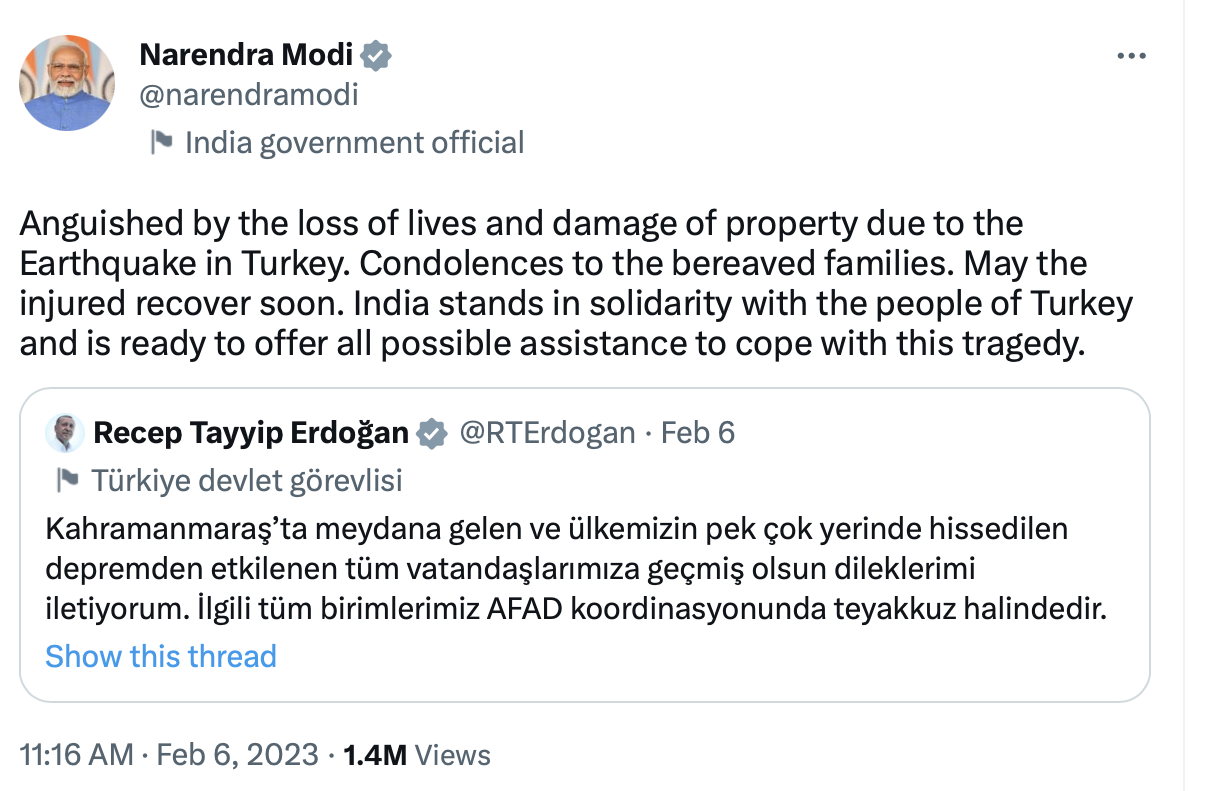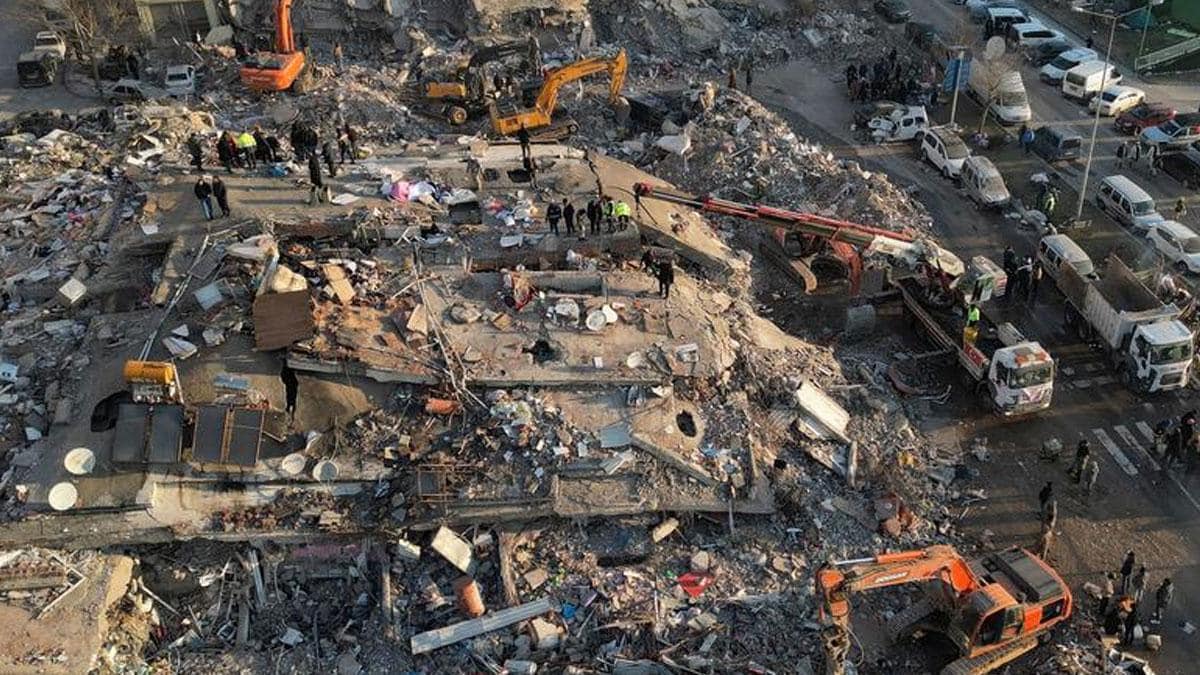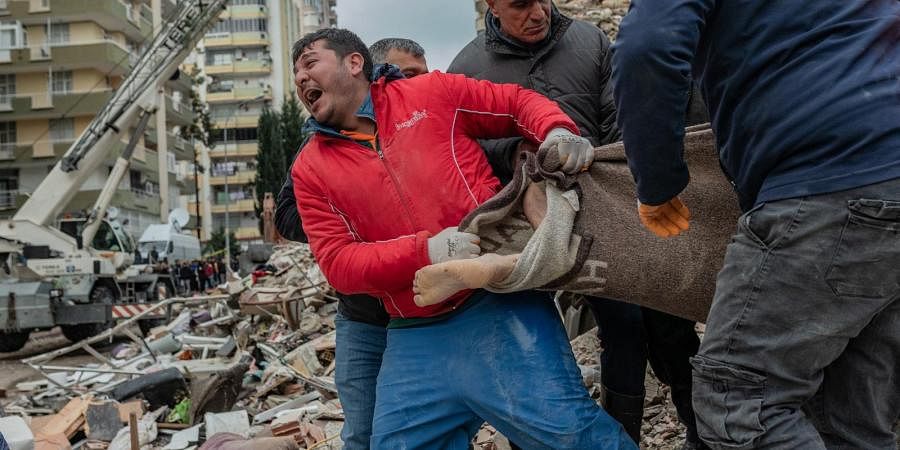On February 6, 2023, a devastating earthquake struck the Turkey-Syria border region, leaving a trail of destruction and loss of life. The earthquake, which had a magnitude of 6.8, hit the Hatay province in southern Turkey. The quake was felt as far as Damascus, the capital of Syria, located around 200 km away. This Turkey earthquake news was a real shocker.
The earthquake resulted in widespread damage, with buildings collapsing and rubble filling the streets. The death toll has risen to 30 in Turkey, and 8 in Syria, with over 1000 people reported injured, as per Turkey news.
The number of fatalities is expected to rise as the search for survivors continues. In addition to the loss of life, the earthquake also resulted in widespread damage to infrastructure and buildings, with many buildings and homes left uninhabitable.
The Aftermath
In the aftermath of the Turkey/Syria earthquake, emergency services and aid organizations have been working tirelessly to provide assistance to those affected. Teams of rescue workers, including the Turkish Red Crescent, have been deployed to the affected areas, searching for survivors and providing medical care to those in need. Hospitals in the region are reported to be overflowing with patients, with many being treated in makeshift tents.
The Turkish government has declared a state of emergency in the affected regions and has deployed thousands of soldiers and police officers to help with the rescue and recovery efforts. The government has also set up a crisis management center to coordinate the response and has appealed for international assistance to help with the relief efforts.
The earthquake has once again highlighted the need for effective disaster preparedness measures in the region. Earthquakes are a common occurrence in this region, and many buildings in the affected areas were not built to withstand seismic activity. In the aftermath of the disaster, it is important that rebuilding efforts take into consideration the need for improved disaster resilience and preparedness.
The Turkey earthquake news has also served as a reminder of the importance of international cooperation in times of crisis. The disaster has affected both Turkey and Syria, and it is crucial that both countries work together to provide aid and support to those affected.
Support Coming In
The international community has also offered its support, with many countries and organizations expressing their condolences and offering aid and assistance.
Despite Turkey’s anti-India activities in the past, Prime Minister Narendra Modi has not only extended much-needed aid to the country, but he has also expressed his sorrow over Turkey’s disaster on social media. The fact that India provides assistance to a country that targets it globally is certainly a curious case.

On Tuesday, India dispatched a mobile hospital, National Disaster Relief Force (NDRF) personnel, and relief supplies to Turkey as part of its humanitarian assistance program.
“The medical team comprises critical care specialist teams to include orthopedic surgical Team, general surgical specialist team, medical specialist teams apart from other medical teams,” the Army said in a statement.
The Devastating Effect
Turkey-Syria earthquake has had a devastating impact on the region. It is sure to leave a trail of destruction and loss of life. The response to the disaster has been commendable, with rescue workers and aid organizations working tirelessly to provide assistance to those affected.
However, the earthquake highlights the need for improved disaster preparedness measures in the region to mitigate the impact of future disasters. The international community must also continue to offer support and assistance to help the affected communities recover and rebuild.













